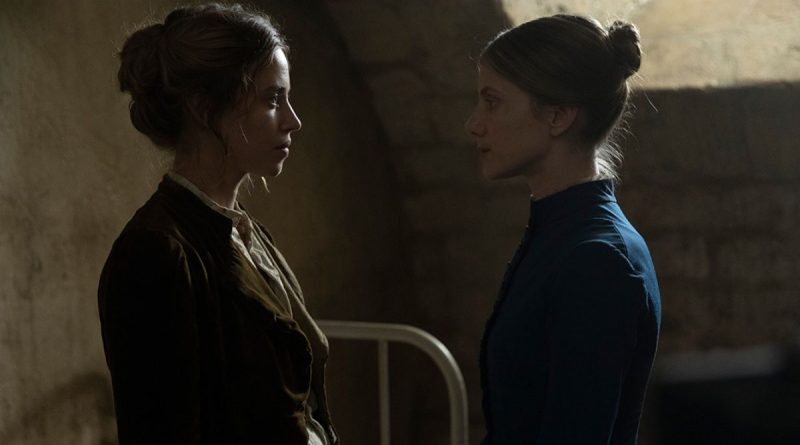
One of my most powerful cinematic memories is from 1948’s The Snake Pit, starring Olivia de Havilland, who was nominated for an Oscar for playing Virginia Cunningham. That movie, and the book it was based on, literally changed mental health in the United States. In it, Virginia has been sent to a state mental hospital after a breakdown. Surrounded by female inmates, she navigates the wards going down to a wards filled with women in straightjackets, or going up to a less restricted one, depending on how she’s progressing. The community dance in The Snake Pit was one of many compelling scenes that inspired my research into the treatment of women by the mental health system way back when I was under 10 years old. It seems writer/director Mélanie Laurent shares my fascination and concern about women and mental institutions. She has directed and written the screenplay for The Mad Women’s Ball. The film goes further back in the long bleak history showing patriarchal branding of women as ‘hysterical’, a word rooted on the Greek for uterus.
Based on the successful debut novel Le Bal des Folles by Victoria Mas, the story, which takes place in 19th century France, is about Eugénie (Lou de Laâge, continuing to expand as an actor) a headstrong, independent young woman, the daughter in a wealthy household. She is difficult to control, and worse, she has visions of spirits, a thing that would make any man celebrated and lauded, but which gives her father an excuse to send her to an insane asylum, the Pitie-Salpetriere Hospital in Paris. There, Eugénie finds a vast collection of discarded women, from those seen as too strong-willed, to whores, to older women no longer of use, to a very few who are actually mentally ill. They’ve been sent there by men in charge, and left to rot. Where on the outside she was rejected and judged, inside the hospital, Eugénie finds a powerful sisterhood of women who protect and support each other.
The hospital is run by Dr. Jean-Martin Charcot, (a doctor who existed in history, did indeed run the Salpatriére, did experiment on female patients without consent, and was lauded for his research.) Aiding him are mostly sadistic nurses, and the head nurse Geneviève (Mélanie Laurent), who is overqualified, soundly ignored, and bossed around by Charcot. She is trying to make small differences in between being relegated to changing bedpans. Eugénie finds common ground through channeling Geneviève’s dead sister and offering messages from the beyond. Perhaps with Geneviève’s help, Eugénie will not be trapped forever in this hopeless place after all.
To read the The Mad Women’s Ball review in its entirety, go to AWFJ.org HERE.



